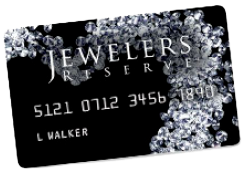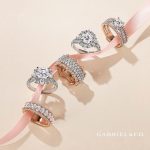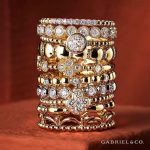Lab grown diamonds are one of the hottest trends in the jewelry industry today. But what exactly are they? And why are so many people choosing to buy them?
This blog post will answer the eight most commonly asked questions about lab grown diamonds in Littleton, CO. It will cover everything from how they are made, to their environmental impact, to whether or not they are as durable as natural diamonds. So if you’re curious about these diamonds, read on!
1. What Are They?
These diamonds are developed in a laboratory instead of mined from the Earth. Lab grown diamonds have the same physical and chemical properties as those mined from the Earth. However, diamonds can be produced much more quickly and at a fraction of the cost.
These diamonds first became available on the market in the early 1990s. Their price has dropped significantly since then, making them a more affordable option for many people.
2. How Are They Made?
The diamonds are created using high pressure, high temperature (HPHT), and chemical vapor deposition (CVD).
The HPHT method involves recreating the conditions present deep within the Earth. A diamond seed is kept in a chamber with a metal catalyst, then exposed to high temperatures and pressures. It causes the diamond to grow until it reaches its full size.
In the CVD method, a diamond seed is placed in a chamber and exposed to methane gas. The resulting chemical reaction produces carbon atoms that settle on the seed, gradually increasing its size. This method can take anywhere from a few weeks to a few months, depending on the size of the diamond being grown.
Both the methods used to create lab grown diamonds have come a long way since they were first developed in the 1950s. The quality of these diamonds is now on par with that of mined diamonds, and in some cases, lab grown diamonds may even be superior.
3. What Is the Environmental Impact?
Lab grown diamonds have a much smaller environmental impact than mined diamonds. Most of the carbon footprint associated with the diamonds comes from the electricity used to power the diamond-growing equipment.
In contrast, the mining and processing of natural diamonds is a significantly more energy-intensive process, with estimates ranging from 80 to 200 million BTUs per carat for mined diamonds, depending on the location of the mine. Maximum energy comes from burning fossil fuels like coal and oil.
Additionally, mining can have a significant impact on local ecosystems. Large-scale diamond mines often involve the clearing of large tracts of land, as well as the use of heavy machinery and chemicals.
4. Does Lab Grown Have the Same Durability As Natural Diamonds?
In terms of durability, these diamonds and natural diamonds are indistinguishable. They both have a similar chemical composition and crystalline structure, so they are equally as strong and hard.
Because these diamonds are purer than many natural diamonds, they may be slightly more challenging. However, all diamonds—natural or lab-grown—are susceptible to chipping and breaking if they are hit at the wrong angle or with enough force.
5. Are They a Cheaper Alternative To Natural Diamonds?
Lab grown diamonds in Littleton, CO, are typically 20-30 percent cheaper than comparable natural diamonds, but the price difference will vary depending on the stone’s quality. Some of these diamonds may be more expensive than natural diamonds of lower quality.
Some factors that affect the stone quality include:
– The size of the diamond
– The color of the diamond
– The clarity of the diamond
– The cut of the diamond
The price difference between these and natural diamonds will also depend on market conditions. When demand is high for natural diamonds, the price for both types of stones will be higher.
6. Why Are They Becoming So Popular?
Some reasons for the increasing popularity are that lab grown diamonds are eco-friendly and conflict-free. They offer excellent value, as you can get a bigger stone for your money. And lastly, many prefer owning a diamond created in a controlled environment rather than mined from the Earth.
7. How Can I Distinguish a Lab Grown Diamond From a Natural Diamond?
Here are tips from jewelers to tell the difference between natural and lab-grown diamonds:
* Check the price. Lab-grown diamonds cost about 30% less than natural diamonds of comparable size, quality, and characteristics.
* Inspect the diamond with a loupe. A trained jeweler will look for tiny imperfections inside the diamond called inclusions. Inclusions are difficult, if not impossible, to remove from diamonds, so their presence is often used to indicate that a diamond is natural.
* Ask about the certificate. The diamond has a certificate from an independent gemological laboratory like the Gemological Institute of America (GIA) or International Gemological Institute (IGI). These certificates will state that the diamond is lab grown.
* Consider the setting. Because lab-grown diamonds are less expensive than natural diamonds, they are often set in lower-quality metals like silver or brass. Natural diamonds are typically set in more precious metals like gold or platinum.
* Examine the seller’s return policy. Many jewelers have a no-return policy for lab-grown diamonds because they are difficult to resell. If a jeweler is hesitant to let you return a lab-grown diamond, it may indicate that they are not confident in the quality of their product.
8. Can You Insure a Lab Grown Diamond?
Yes, you can insure these diamonds. Many insurance companies now offer coverage for lab grown diamonds because they are becoming more and more popular. You should verify with the insurance firm to see if they have any special requirements for insuring the diamond.
Matheu’s Fine Watches & Jewelry in Littleton, CO, sells lab-grown diamonds and can answer any questions you might have. Our expert team will assist in finding the best diamonds for your needs, whether they are natural or lab-grown.





